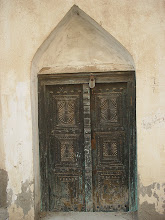Just finished reading David Crystal’s The Stories of English (2004, Penguin) and wound up, as one often does after a good book, with more questions than answers. Crystal’s take on the English language, in this and other publications of note, has been descriptive, rather than prescriptive. In other words, rather than prescribing what the language should look like, as grammarians are often wont to, he describes what it actually does look like. Crystal revels in the possibilities of Modern Standard English, not as the Holy Grail of usage, but as a unifying alternative in a multidialectal and multilingual world. In his English as a Global Language (2003, CUP), the author explored the value of English uniting speakers of other languages, encouraging bilingualism in both a mother tongue and English. Here, the praises of multidialectism are sung: while Modern Standard English ensures that all English speakers can understand each other, the unique flavours of dialect diffuse meaning, atmosphere and linguistic wealth into the language. The thorough and incisive account of the history of English also shows that dialect is nothing new. Truth be told, English itself sprung from that fertile spring of the accursed bastard dialect- a fact readily under rug swept by its purist-prescriptivist proponents. We see that if language is a living entity, it can not be treated like some lifeless object.
I really want to agree with the author. As a native speaker of a minority language who later learned what even the generous David Crystal refers to as a creole of English, I feel he has championed my (not-so-rare) cause. And yet, as a teacher of English, I am not sure what this leaves me to teach. If non-standard usage is not “wrong”, and my students’ usage is common enough to be considered a dialect (though abhorrent to the prescriptive grammarian and even to my dastardly bastardly dialectical sensibilities), does that make it “right”? If dialect is so vibrant and expressive and wrapped up in cultural identity, do I have a right to nip “errors” in the bud? And most of all, if the Modern Standard English-speaking world remains prejudiced- as it does- towards “broken English”, do I have a right not to?
I don’t have a final answer, but my evolving policy at the moment is this. To encourage awareness of non-standard English use- local and others- by contrastive analysis. To conduct error analysis where the local dialect use can cause misunderstanding of offense. And most definitely, to encourage informed and informative use of the local dialect where appropriate, using strategies such as paraphrasing and footnotes for explanation.
(Broken English was the title of a 1979 song by Marianne Faithfull. See the video here.)
Subscribe to:
Post Comments (Atom)


No comments:
Post a Comment